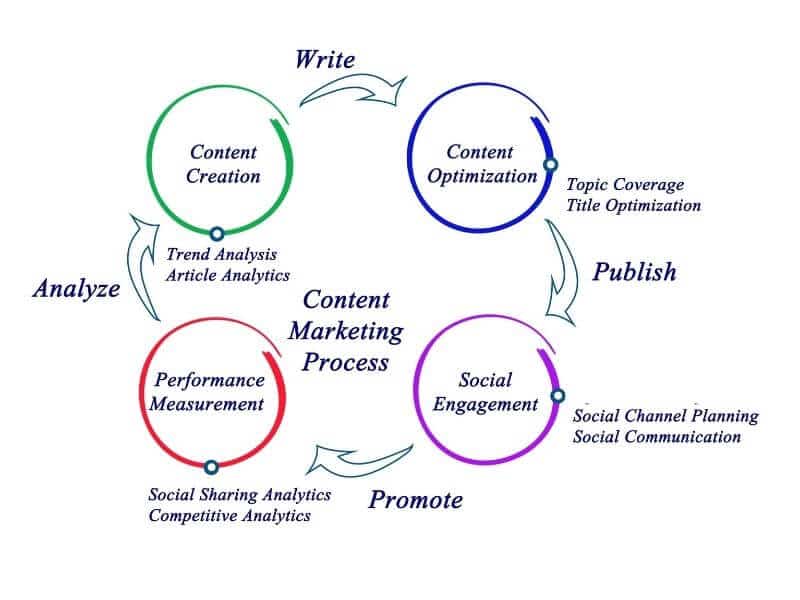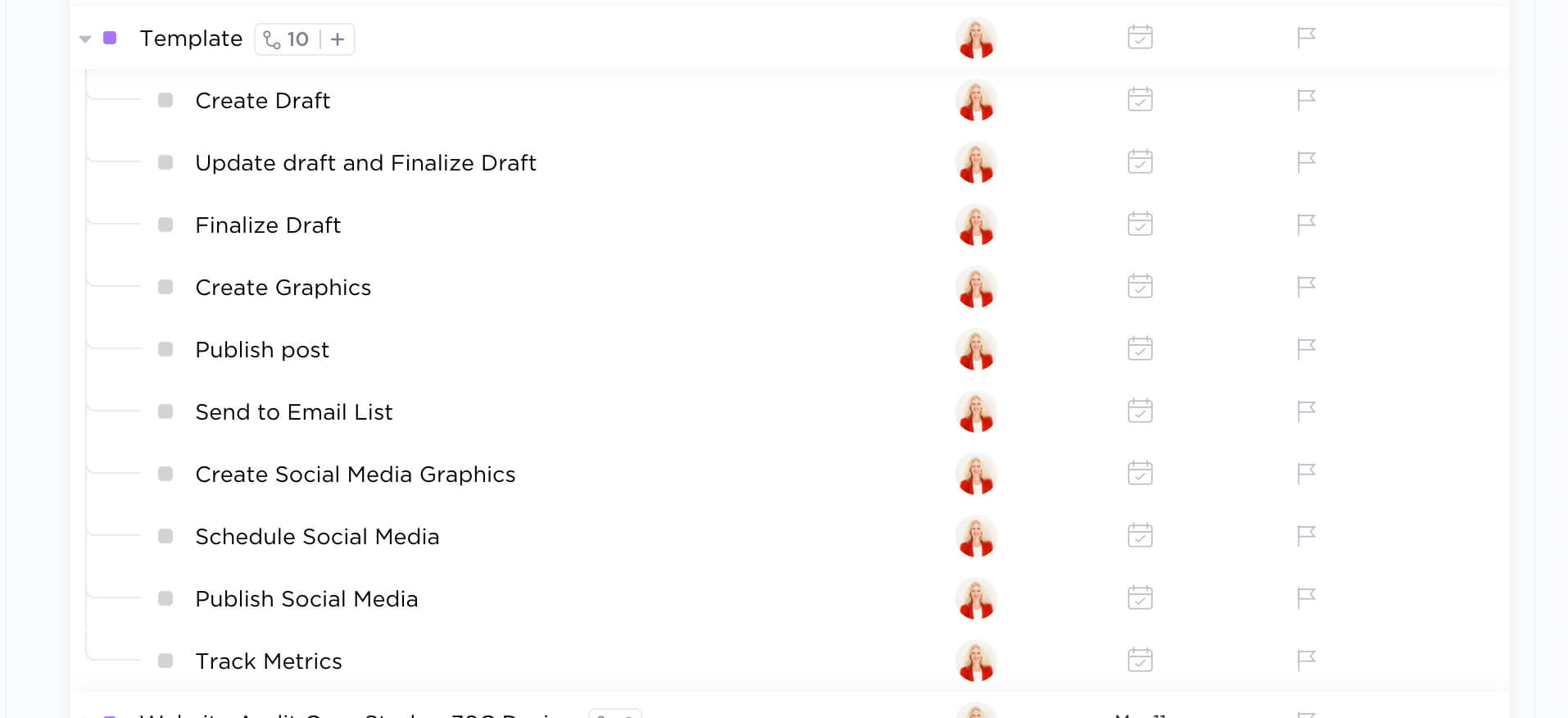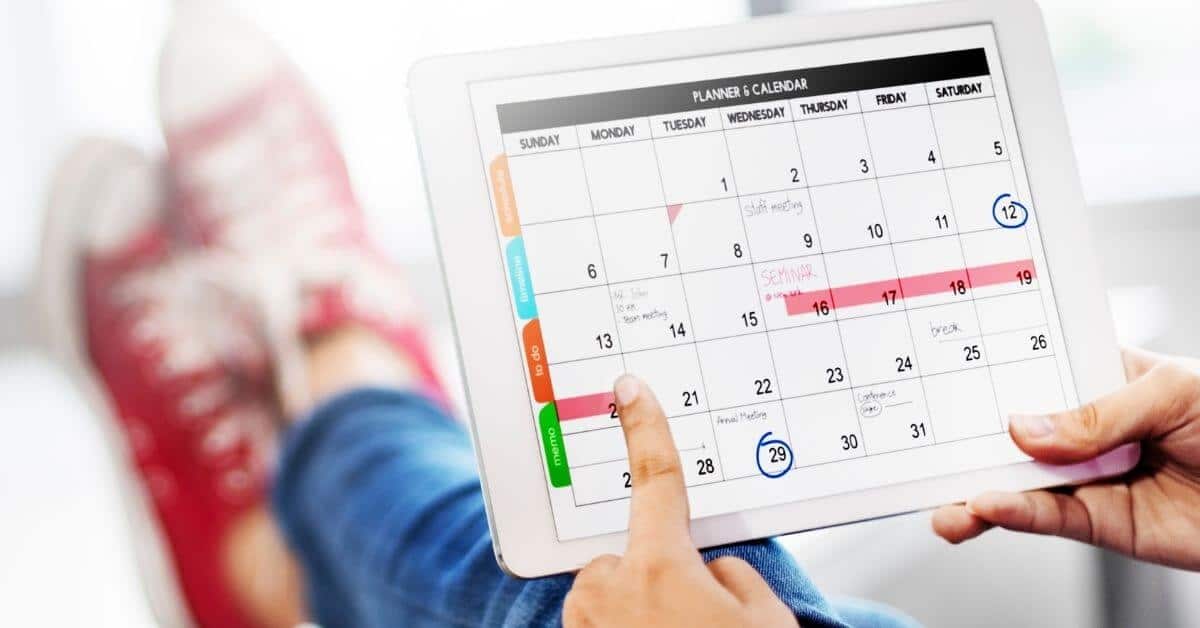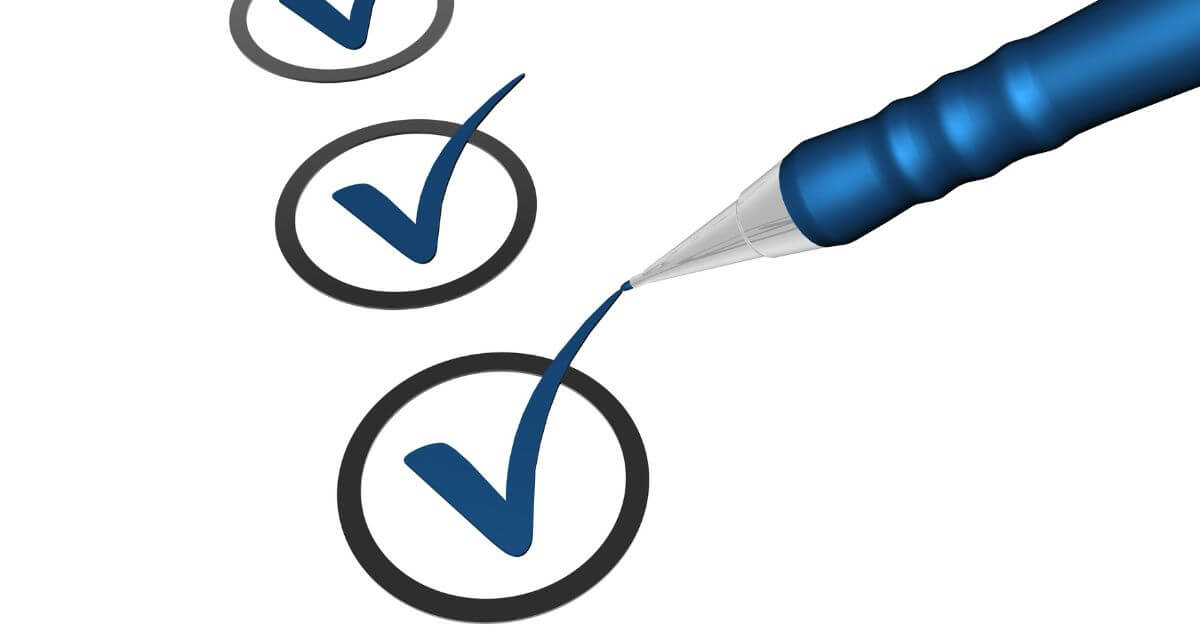Do you have content goals? Do you know how to measure content progress? If not, this blog post is for you. In it, we will discuss content planning and why it’s so important. This article will cover a content plan and outline some steps to create one in 60 minutes or less.
What is a Content Plan?
First, let’s start with what a content plan is. A content plan is a strategy that helps content creators stay on track with their yearly work plans and goals. It helps content publishers figure out what they want to discuss or sell and puts it into a content project plan.
This type of planning is important because it can help measure content progress and track success. Without a content plan, you may find yourself struggling to hit your goals or worse – losing focus on what’s important.
What Should a Content Plan Include?
A content plan contains everything needed to achieve the goals of your content strategy. All content plans include everything from capturing social media engagements, blogging and SEO, and email marketing.
What is a Good Content Strategy?
By good, we mean something which meets its intended purpose. There are several factors to consider when trying to find a good content strategy.
Some of these factors include the audience, target market, objectives, and goals (such as KPIs). For example, a good content strategy for a company may be to create more blog posts with relevant topics that will help customers make better purchasing decisions.
The more details you can provide in your content marketing strategy plan the better and more successful it will be from a planning perspective.
“High-quality web content that’s useful, usable, and enjoyable is one of the greatest competitive advantages you can create for yourself online.”
― Kristina Halvorson, Content Strategy for the Web

How Do You Write a Content Strategy Plan?
There are seven steps necessary to create an effective content strategy.
- Tell me the purpose.
- Identify your target market
- Analyze competitiveness.
- Select your Distribution channel(s).
- Create content to complete your customer experience.
- Create a calendar to publish.
- Repeat
Create Content Goals
Content goals are the outcome of your content strategy, so before you start planning content projects for a quarter or year, figure out what to write about based on your yearly work plan and business objectives. Define weekly or monthly content themes that align with those content goals as well as your desired audience type(s).
Determine Content Project Length
This will help you better estimate how much content you’ll need to produce over the next few months. I recommend this includes at least one blog article a week and/or one email for email marketing a week.
You can create a content calendar for the month, quarter, or year. I recommend that the minimum length of your content plan is at least one month. You are putting effort into this plan. This allows you to focus on topics, expand on those topics, and create great cluster articles for SEO.
Pick Content Formats and Distribution Channels
Not all content needs to be published on your website. Figure out content formats and channels that will make your content most effective.
Some content is for social media only to drive engagement and social advertising, while others may be designed for your website and SEO strategy. I recommend that email marketing is always a part of the distribution channel as it is the most high-converting.
Plan Content Production Schedule
This is when you’ll start thinking about how much content to publish each week or month, along with the days/dates it should be published.
Create a calendar of dates for content delivery milestones based on those deadlines from above (e.g. content production deadlines, blog posting publication dates) and upcoming content projects you have scheduled (e.g. webinars, social media).
If needed, add content milestones that align with your business objectives to the calendar as well – e.g., holidays or events tied to when you want a specific piece of content published.
Add in buffer days for content creation. Keep content projects in mind as you plan content production and determine when to schedule buffer days for content creation (e.g., holidays, weekends, customer projects).
Share your content plans with team members so they can review it and provide feedback.
Measure Your Results for Your Content Plan
Measuring success with your content marketing strategy is key. If we don’t analyze users’ feedback, it’s as bad as having the conversations muted. You want a clear picture of what your audience liked, and why.
Keep track of how long users stayed on a blog article, if they took another action, and made a purchase. Additionally, keep track of open rates and click rates in email marketing.
Set Your Content Goals
When developing new content marketing plans it is essential to define clear business targets and KPIs. In other words, there’s not much you need to have in mind when developing a strategic plan.
Focus on Outcomes
Goals are aimed at driving content strategy, so make sure your objectives match the outcome you want.

Listen to Your Customers to Improve Your Content Strategy
While Data Analytics is a valuable tool, it provides only black or white data in broad terms. Access other parts by truly evaluating customers. Your customers have to know it’s their turn to make a difference on Social Media so make a regular effort. Talk to your customers and understand their needs better whether it is through social media or sending a survey through your email marketing.
You can easily turn these questions into blog articles, additional social media posts, and more. Knowing what your customers want helps them make better purchasing decisions.
How Do I Create a Content Plan?
- Keep a brainstorming list in a Google Doc or Word Document. I keep a brainstorm list in my project management system.
- I create monthly ideas of what I want to discuss. For example, January is all about content. I plan out 3-4 blog articles around content. If I come up with ideas outside my monthly list then I add those to a future ideas list. Repeat for February and March.
- I break those articles down into some key points to post on social media. Make at least 1 video about the topic to put on social media.
- Each blog article can then be used as a topic in an email.
- Add any additional freebies to the list
- Repeat each week.

What Can You Achieve by Spending 60 Minutes Planning Your Content Marketing Plan?
Now grab a Google Doc Start brainstorming, organizing, and review it. Markdown your goals. What will help you stay focused when creating content in the future? Let us know in a comment below!
–






